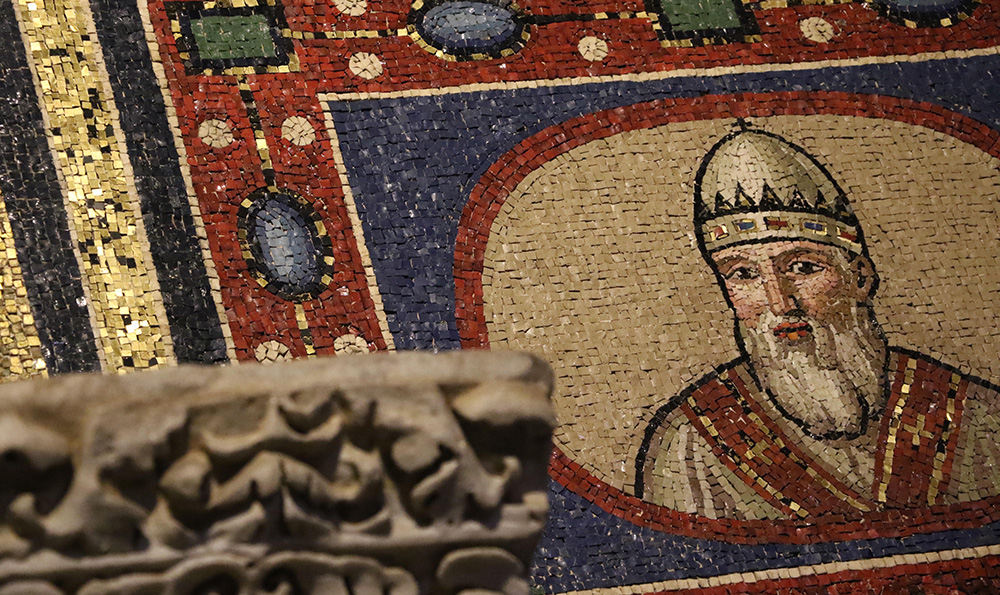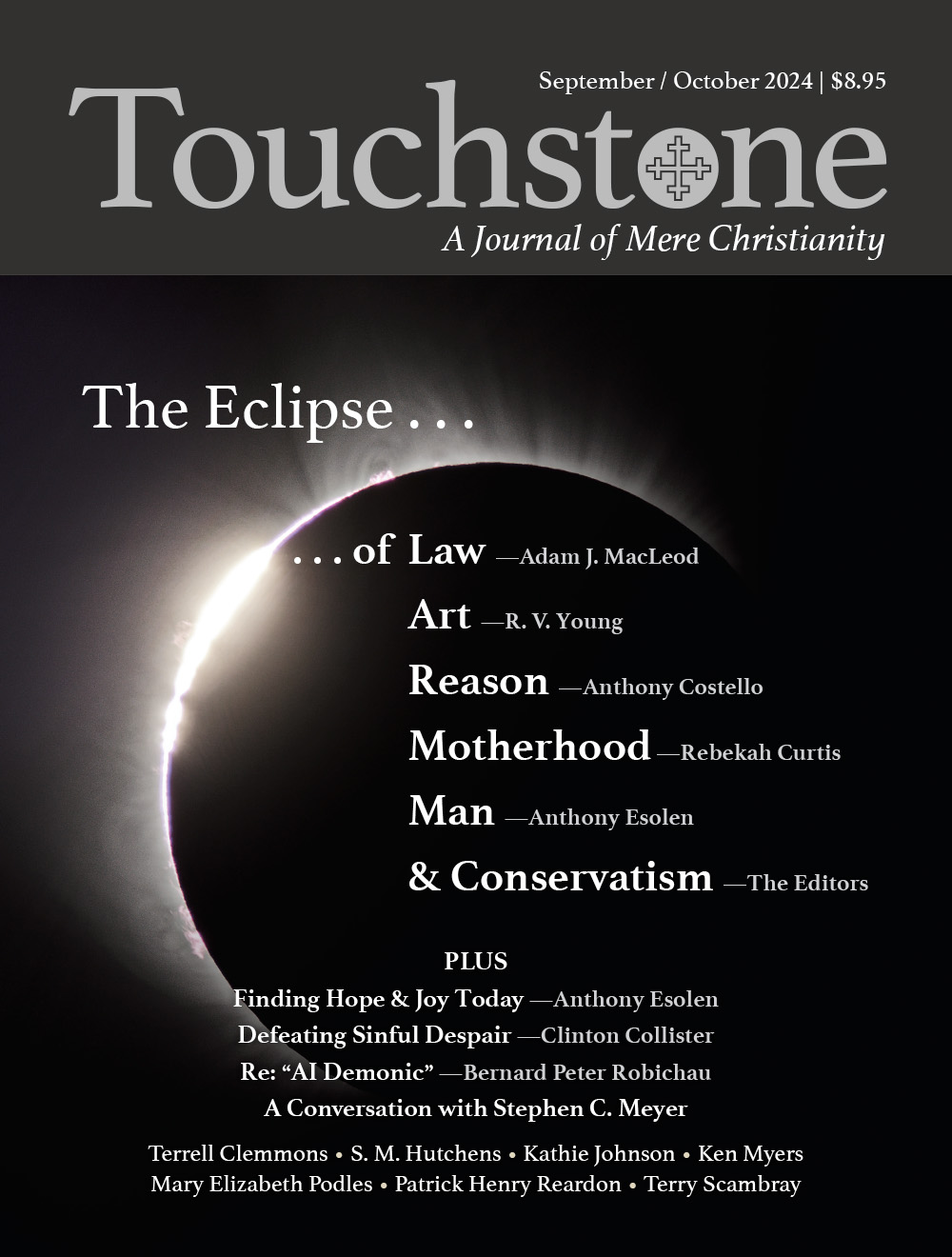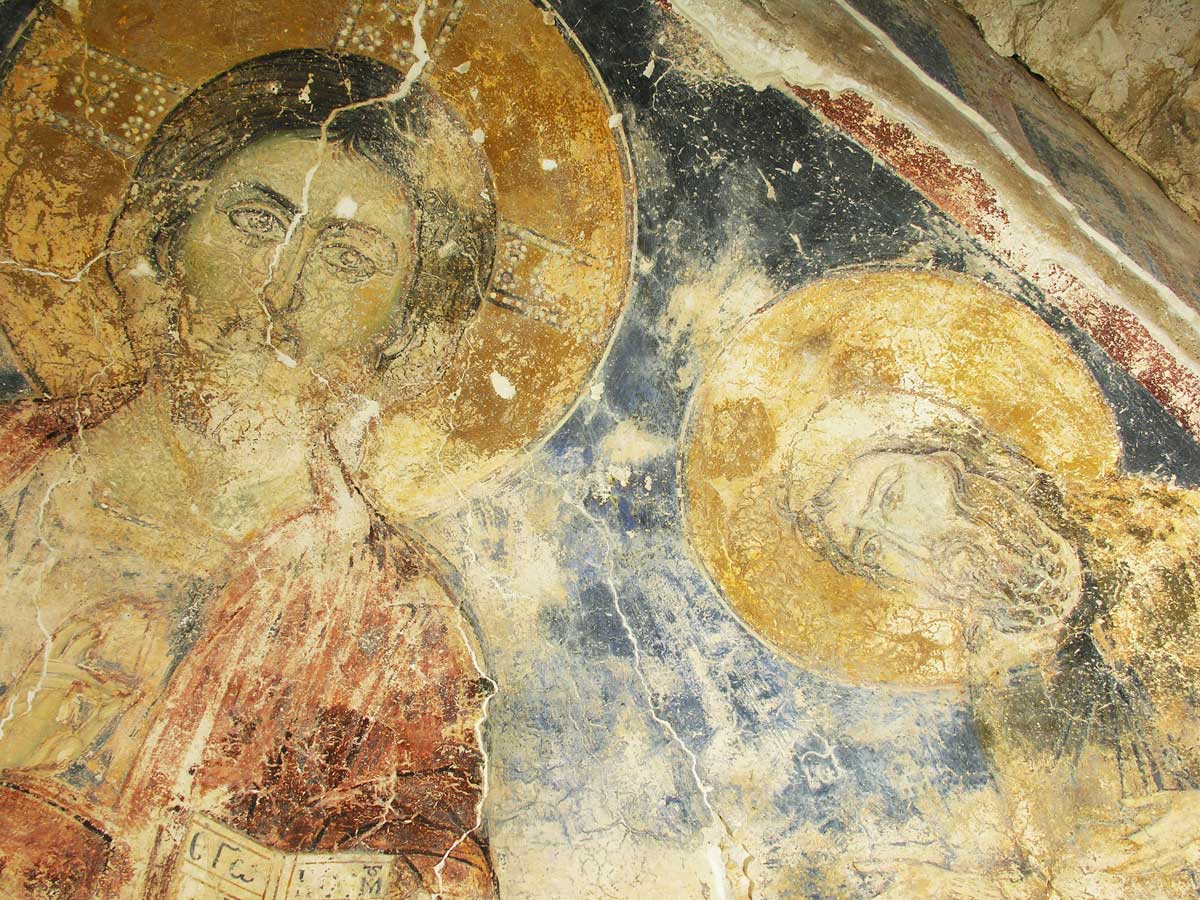Young Folly & Elder Hope
A Battle Plan for Peace While Growing Old
I turned 65 a short while ago. I am thinking about my growing old. Our meddlesome national government compels me to think about it, whether I like it or not, and mostly in unproductive and restless ways. But I want to think about it otherwise than to ask about preparing financially for a long and lingering debility—with the added care, in my case, of setting things well for our son David, who will never be able to live alone and take care of himself. Living alone is what we do more and more these days, whether or not we are old, alone, and restless. Still, I sense that many a worldly care is falling away from me, leaving only those that are most urgent, most important. I am thinking about and seeking a peace I have never known.
“Vanity, saith the Preacher, vanity,” says Robert Browning’s old sinner in “The Bishop Orders His Tomb at Saint Praxed’s Church.” He seems never to have really listened to that most bracing pessimist the world has known. For he is lying on his bed and hoping that his nine “nephews” gathered round him, actually his illegitimate sons by a beautiful mistress he once loved, will pony up the money for a fancy tomb where he will lie in his church, Saint Praxed’s, “the church for peace,” as he calls it.
Peace; what is it? For the bishop, it is not what Augustine calls it, “the tranquility of order,” since nothing in his life has been orderly. Bishops aren’t supposed to keep mistresses, after all, or take advantage of a church fire to smuggle away a precious lump “of lapis lazuli, / Big as a Jew’s head cut off at the nape, / Blue as a vein o’er the Madonna’s breast.” It is easy for us, who have abjured the high moral vision that Browning and the best of his fellow Victorians took for granted, to condemn the old man, as Browning surely does, but if our schools and colleges do not instruct young people in lust, avarice, and ambition, I have been asleep all of my adult life, and the most significant difference between the bishop and our elites is that the Renaissance man had a great deal of humane learning and fine taste, and ours do not.
So the bishop is restless on his bed of death, as he was restless in life. He believes he wants peace, and in a sense he does, despite himself, because God made us all for union with him, which brings the peace that passeth understanding. But what he really wants, and what many a pagan sentimentalist with a sprinkling of Christian lore expects heaven to be, is an unbroken continuation of the preoccupations of this life. In the bishop’s case, some of those preoccupations are ecclesial and sacred, though it is not their sanctity that moves him but their dependable repetition and their capacity to fill the senses and lull the mind. So he imagines himself lying on his tomb-top—in effigy or in the flesh; the dying man’s mind is wandering, so he loses the capacity to distinguish between the two—as the works of the church go on:
And then how I shall lie through centuries,
And hear the blessed mutter of the Mass,
And see God made and eaten all day long,
And feel the steady candle-flame, and taste
Good strong thick stupefying incense-smoke!
But other preoccupations are personal, such as his hatred of his predecessor, Gandolf, whose relative carelessness about high art seems to have gone along with a care for righteousness and holiness that our bishop cannot appreciate. “Old Gandolf with his paltry onion-stone,” cries the sinner, imagining, as he loses his hold on reality, that he is in Saint Praxed’s already and not in bed in his state-chamber—“Put me where I may look at him!” Why, the very summation of his life will be made evident, as he imagines it, when for all eternity he may glare at the effigy of Gandolf, watching for his old enemy to leer with envy at him as the bishop says he always used to do, “so fair she was.”
Vanity of vanities, says the Preacher. We pray that God will spare us from an unforeseen death, so that we may make provision for our final temporal duties and, more important, that we may prepare ourselves, as John Donne says, for making music in the choir of heaven, and so “tune the instrument here at the door” by repentance and by submitting ourselves to the merciful work of God.
It is what the dying bishop has not done, so that even though he is given plenty of time to prepare, we see that his attachments to earthly things disrupt his soul. He can hardly get out a complete sentence without an interruption of doubt, near to despair—“Ah God, I know not!”—or distrust in the sons he does not seem to have loved well, and who do not seem eager to accede to his elaborate funerary designs—“Sons, all have I bequeathed you, villas, all!”—or unseemly and even trivial concerns for dust—“My bath must needs be left behind, alas! / One block, pure green, as a pistachio-nut.” Browning causes us to smile at the bishop’s vanity, but how many of our concerns are for things neither as beautiful in themselves nor as useful as that bath carved out of green jasper!
The Ordinary Course of Human Works
Let me illustrate now by my own follies, which the Preacher should have put me wise to, let alone the Lord Jesus.
It was election day in November 1998. I was traveling with my family in Italy, confident, though I may say somewhat queasily confident, that the Republicans would sweep the field in the congressional elections, as a rebuke to President Clinton, that venal man of considerable and wasted intelligence. I had not reckoned on the backlash against the party for its impeachment proceedings against him, and no one had reckoned that, a few days before, an exceptionally handsome young gay man in Wyoming would be murdered in a drug deal gone bad, and that his murder, attributed to hatred and bigotry, would engender a reaction against the influence of the Christian faith on our political life. I recall how my heart sank when an Italian bartender, to whom I had tried to explain American political affairs the day before, said to me, with a knowing nod, “Avete visto, che il presidente è riuscito?”—“You’ve seen that the president has come out all right?” And I recall the frantic call I made to my sister, hoping that the Republicans would hold onto Congress, which they did, barely.
Anthony Esolen is Distinguished Professor of Humanities at Thales College and the author of over 30 books, including Real Music: A Guide to the Timeless Hymns of the Church (Tan, with a CD), Out of the Ashes: Rebuilding American Culture (Regnery), and The Hundredfold: Songs for the Lord (Ignatius). He has also translated Dante’s Divine Comedy (Random House) and, with his wife Debra, publishes the web magazine Word and Song (anthonyesolen.substack.com). He is a senior editor of Touchstone.
subscription options
Order
Print/Online Subscription

Get six issues (one year) of Touchstone PLUS full online access including pdf downloads for only $39.95. That's only $3.34 per month!
Order
Online Only
Subscription

Get a one-year full-access subscription to the Touchstone online archives for only $19.95. That's only $1.66 per month!
bulk subscriptions
Order Touchstone subscriptions in bulk and save $10 per sub! Each subscription includes 6 issues of Touchstone plus full online access to touchstonemag.com—including archives, videos, and pdf downloads of recent issues for only $29.95 each! Great for churches or study groups.
Transactions will be processed on a secure server.
more on Poetry from the online archives
more from the online archives
calling all readers
Please Donate
"There are magazines worth reading but few worth saving . . . Touchstone is just such a magazine."
—Alice von Hildebrand
"Here we do not concede one square millimeter of territory to falsehood, folly, contemporary sentimentality, or fashion. We speak the truth, and let God be our judge. . . . Touchstone is the one committedly Christian conservative journal."
—Anthony Esolen, Touchstone senior editor











